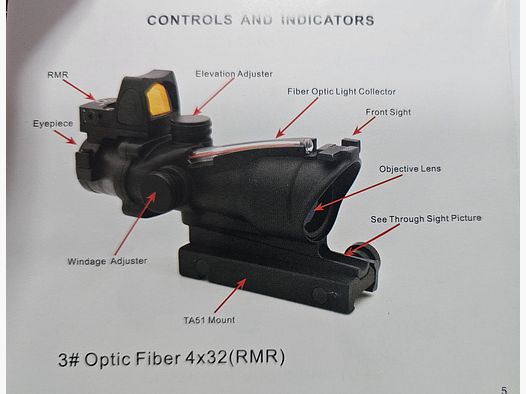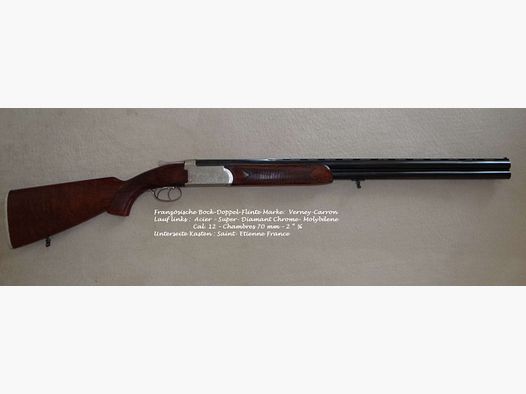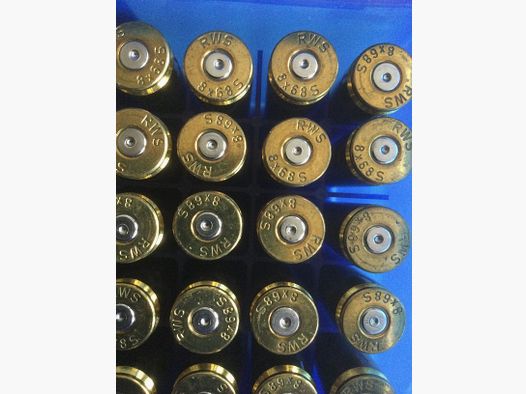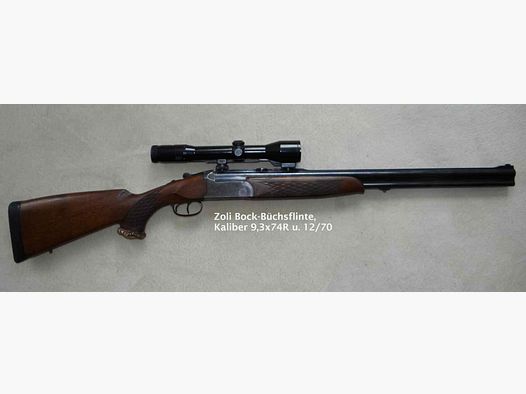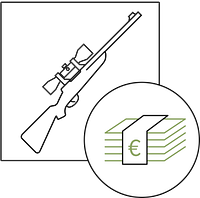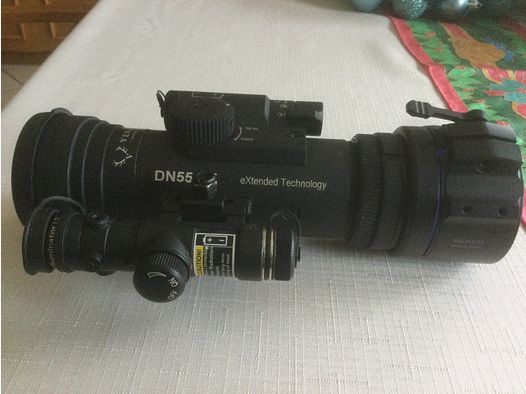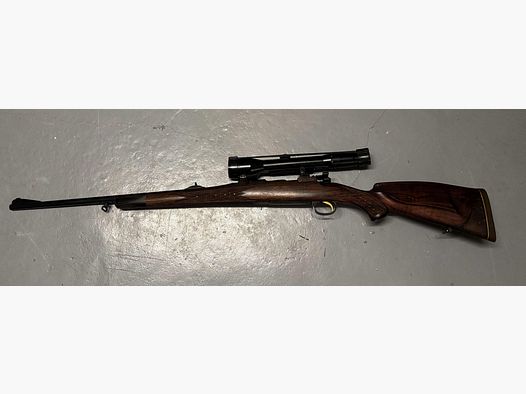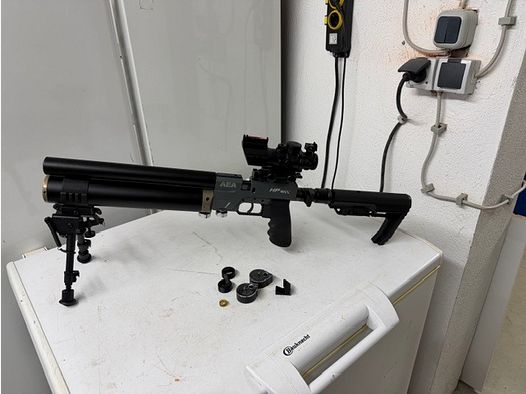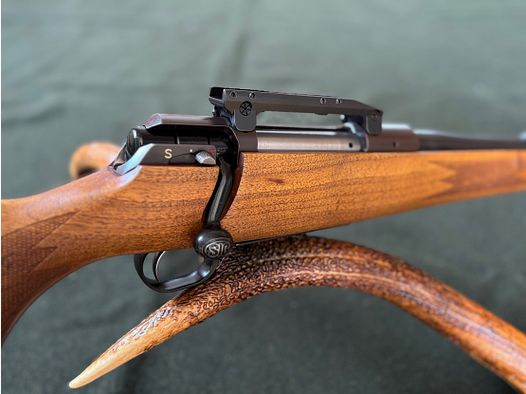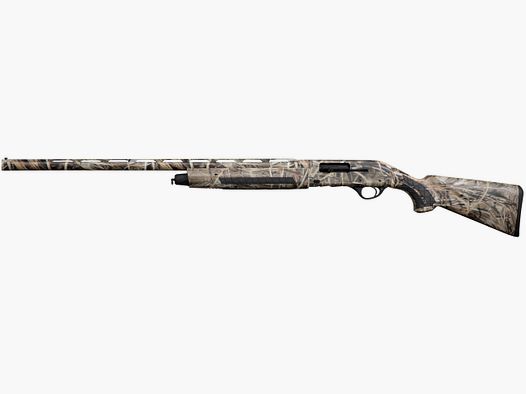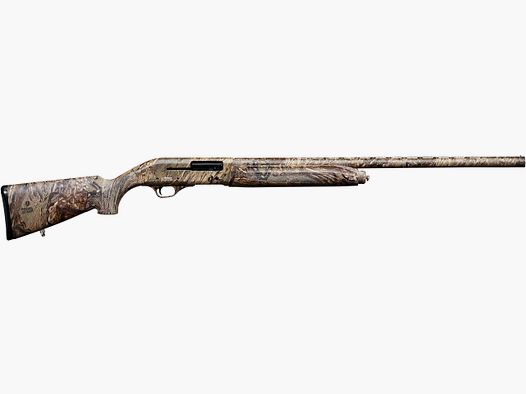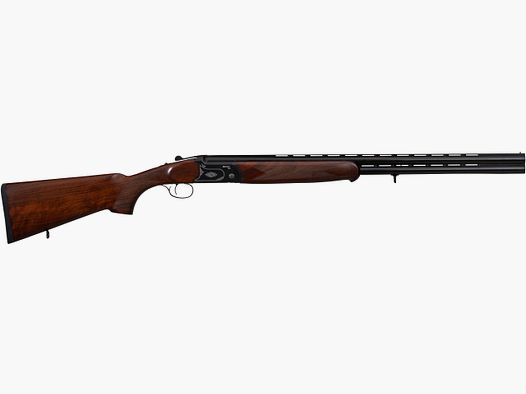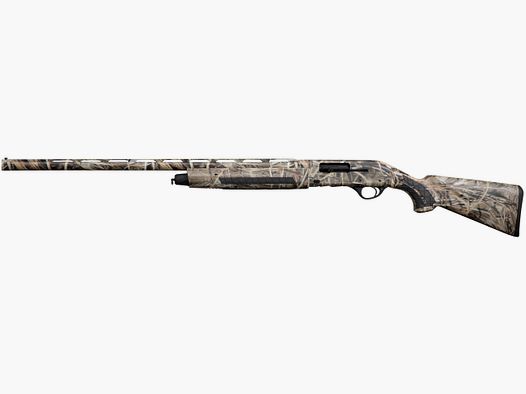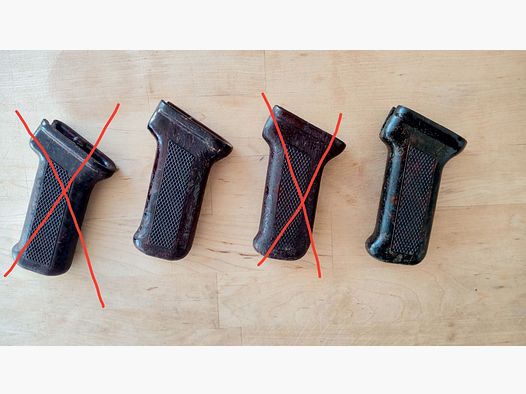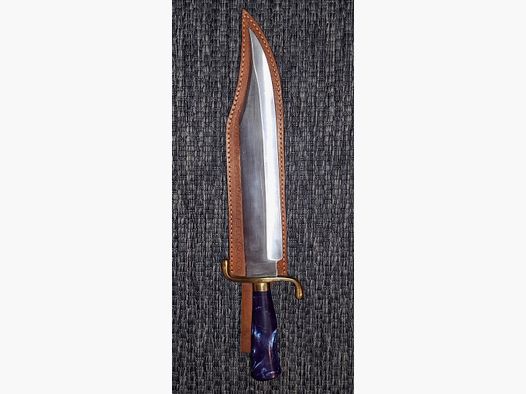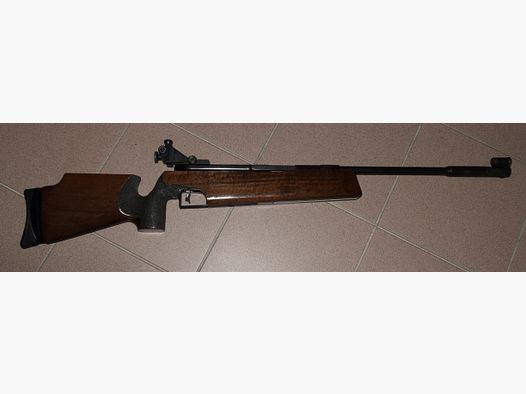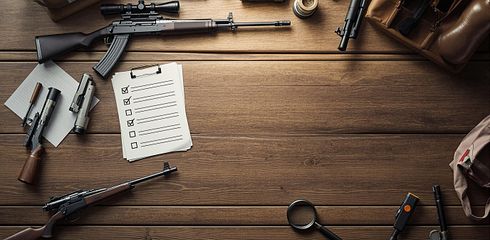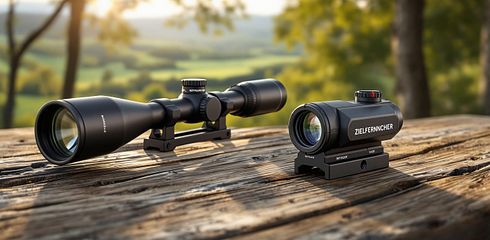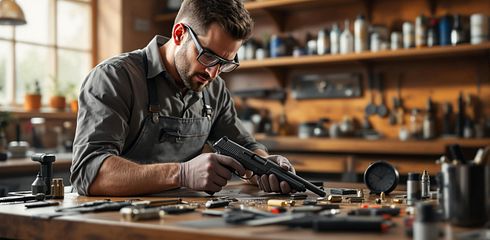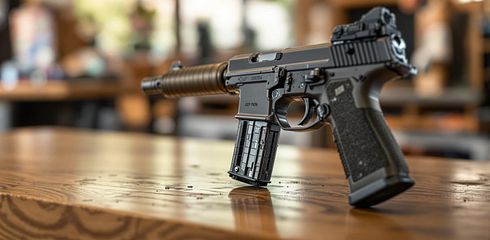In Germany, there are two types of gun licenses: the Small Gun License, which applies to blank-firing, irritant, and signal weapons, and the Large Gun License, which is required for real firearms. Both are subject to strict legal requirements. Here are the key points at a glance:
- Small Gun License: Allows the carrying of certain weapons (e.g., blank-firing weapons). No proof of need required. Validity: Unlimited.
- Large Gun License: Requires proof of a legitimate need (e.g., occupational hazard). Validity: 3 years.
- Requirements: Minimum age of 18, personal suitability, reliability, possibly liability insurance.
- Application: Through the responsible weapons authority, with documents such as a certificate of good conduct, proof of expertise, and a medical certificate.
- Penalties for Violations: Fines, revocation of the gun license, or imprisonment.
Quick Comparison of Gun License Types
| Feature | Small Gun License | Large Gun License |
|---|---|---|
| Type of Weapon | Blank-firing, irritant, and signal weapons | Real firearms |
| Proof of Need | Not required | Mandatory |
| Validity | Unlimited | 3 years |
| Insurance Requirement | None | Liability insurance required |
Read on for detailed answers to the most common questions regarding the German gun license.
1. What is a Gun License and Who Needs It?
What is a Gun License?
A gun license is an official permit that allows individuals to carry firearms in public under strict conditions [1]. There are two main types of gun licenses:
| Type | Description |
|---|---|
| Small Gun License | Applies to blank-firing, irritant, and signal weapons with PTB approval |
| Large Gun License | Required for real firearms, associated with extensive testing |
Who Needs a Gun License?
A gun license is necessary as soon as a weapon is to be carried in public [1][2]. There is a clear distinction between:
- Weapon Ownership: The weapon may be stored at home.
- Carrying a Weapon: The weapon is carried in public.
However, there are exceptions: Transporting unloaded weapons to a shooting range or hunting area does not require a gun license, as long as the weapons are not ready to fire and are securely stored [2].
For foreign nationals, additional regulations apply. They must have lived in Germany for at least five years before they can apply for a gun license [1]. Violations of the gun license requirement can result in fines or imprisonment.
Having clarified the basics of the gun license, let’s now take a look at the application process.
Small Gun License - Requirements and Prohibitions
2. How to Apply for a Gun License?
In Germany, the process for applying for a gun license is strictly regulated and involves several steps. The application is submitted to the responsible weapons authority, usually at the police headquarters or public order office. Applicants must meet various requirements, including proof of completion of a firearms training course, liability insurance, and submission of all required documents [1][2].
Required Documents
| Document | Description |
|---|---|
| ID Card/Passport | Confirmation of identity and residence |
| Certificate of Good Conduct | Must be current and contain no relevant entries |
| Proof of Expertise | Proof of completion of a firearms training course |
| Insurance Proof | Proof of liability insurance |
| Proof of Need | Necessary for the large gun license |
| Medical Certificate | Confirmation of physical and mental suitability |
The processing time for the application can take several weeks to months, depending on the authority and individual situation. Costs include administrative fees, participation in the firearms training course, and liability insurance, which can vary by federal state [2][5]. A gun license is valid for three years, and upon renewal, suitability is re-evaluated [1].
After submitting the application, applicants must meet further strict requirements to obtain the approval.
sbb-itb-1cfd233
3. Requirements for the Gun License
In Germany, strict rules apply for the issuance of a gun license. These serve to protect public safety and ensure that weapons are only carried by responsible individuals.
Basic requirements include a minimum age of 18 years and personal suitability [2].
Reliability and Personal Suitability
Personal suitability includes both psychological stability and physical abilities, as well as abstaining from addictive substances. The following criteria are examined:
| Criterion | Requirements |
|---|---|
| Criminal Record | No relevant entries in the certificate of good conduct |
| Addictive Behavior | No dependence on alcohol or drugs |
| Mental Health | Proof of psychological stability |
| Physical Suitability | Ability to handle weapons safely |
Proof of Need
A central criterion for the gun license is the proof of a legitimate need. This is present when the applicant is either professionally dependent on the gun license, such as in security services, or due to a proven personal threat.
Insurance Coverage
Additionally, liability insurance is required. This must cover a minimum coverage amount of one million euros [2].
Even if all requirements are met, this does not automatically mean that the application will be approved. The responsible authority decides on a case-by-case basis regarding the issuance.
The next section explains how the requirements differ depending on the type of gun license.
4. Small vs. Large Gun License: The Differences
The Small Gun License allows the carrying of blank-firing, irritant, and signal weapons, provided they are marked with a PTB test mark from the Physikalisch-Technische Bundesanstalt [2].
| Feature | Details |
|---|---|
| Validity Period | Unlimited |
| Minimum Age | 18 years |
| Proof of Need | Not required |
| Insurance | No special insurance required |
The Large Gun License has significantly stricter requirements, as it is issued for real firearms that pose a higher risk [2].
| Feature | Details |
|---|---|
| Validity Period | Three years, with two extensions possible for three years each |
| Insurance Requirement | Liability insurance with at least 1 million euros coverage |
| Proof of Need | Mandatory |
A legitimate need is essential for the Large Gun License. This could be justified, for example, by a professional activity in the security sector or a proven personal threat situation [2][3].
In addition to the general requirements already described in the previous section, authorities check the following for the Large Gun License:
- A detailed review of reliability
- A comprehensive assessment of personal suitability
- Proof of professional qualifications
- Regular follow-ups during the validity period
After explaining the differences between the two types of gun licenses, we will now address the legal obligations and potential consequences associated with carrying weapons.
5. Legal Obligations and Penalties
Those who possess a gun license must adhere to strict legal requirements. These rules reflect the high safety standards of German gun law.
Documents to Carry
Gun license holders are required to always carry three essential documents:
| Document | Purpose |
|---|---|
| Gun License | Proof of authorization |
| Valid ID Card | For identity verification |
| Insurance Proof | Required for the Large Gun License (liability insurance) |
Additionally, weapons must be stored securely. This means they should be kept in locked gun cabinets, while ammunition must be stored separately and also locked away. This prevents unauthorized access.
Penalties for Violations
Those who violate gun laws can expect severe consequences:
| Violation | Consequences |
|---|---|
| Carrying without the required documents | Fine, temporary revocation of the gun license |
| Improper storage | Fine, revocation of the gun license |
| Carrying without a valid gun license | Possible imprisonment, permanent revocation |
A gun license can be revoked if:
- Personal suitability is no longer present.
- Violations of gun law provisions occur.
- A conviction for a serious crime exists.
The responsible authorities regularly check whether the requirements for the gun license are still met [2][3].
Adhering to these requirements is essential to retain the gun license and avoid legal issues.
Conclusion: Important Aspects of the Gun License in Germany
Here is an overview of the central points regarding the gun license in Germany, after considering the legal requirements.
Requirements for a Gun License
To obtain a gun license, the following conditions must be met:
- Minimum Age: 18 years
- Proof of Personal Suitability: No psychological or physical limitations
- Reliability: No criminal record or doubts about law-abiding behavior
- Private Liability Insurance [2][4]
Differences Between the Types of Gun Licenses
The two main categories of gun licenses differ in important aspects:
| Feature | Small Gun License | Large Gun License |
|---|---|---|
| Validity | Unlimited | 3 years |
| Proof of Need | Not required | Required |
Thorough Examination by Authorities
The authorities scrutinize every application closely. Particularly, personal reliability plays a central role. If there are doubts about suitability, a psychological assessment may be requested [5][6].
Responsibility When Holding a Gun License
Holding a gun license comes with great responsibility. This includes:
- Secure Storage: Weapons must be stored in a way that prevents unauthorized access.
- Document Requirement: All relevant documents must always be current and readily available.
Violations of these obligations can have serious consequences, including the revocation of the gun license [2][5].
Regular checks by the authorities ensure that all legal requirements are met. Those who act responsibly and adhere to the rules can retain their permit.




